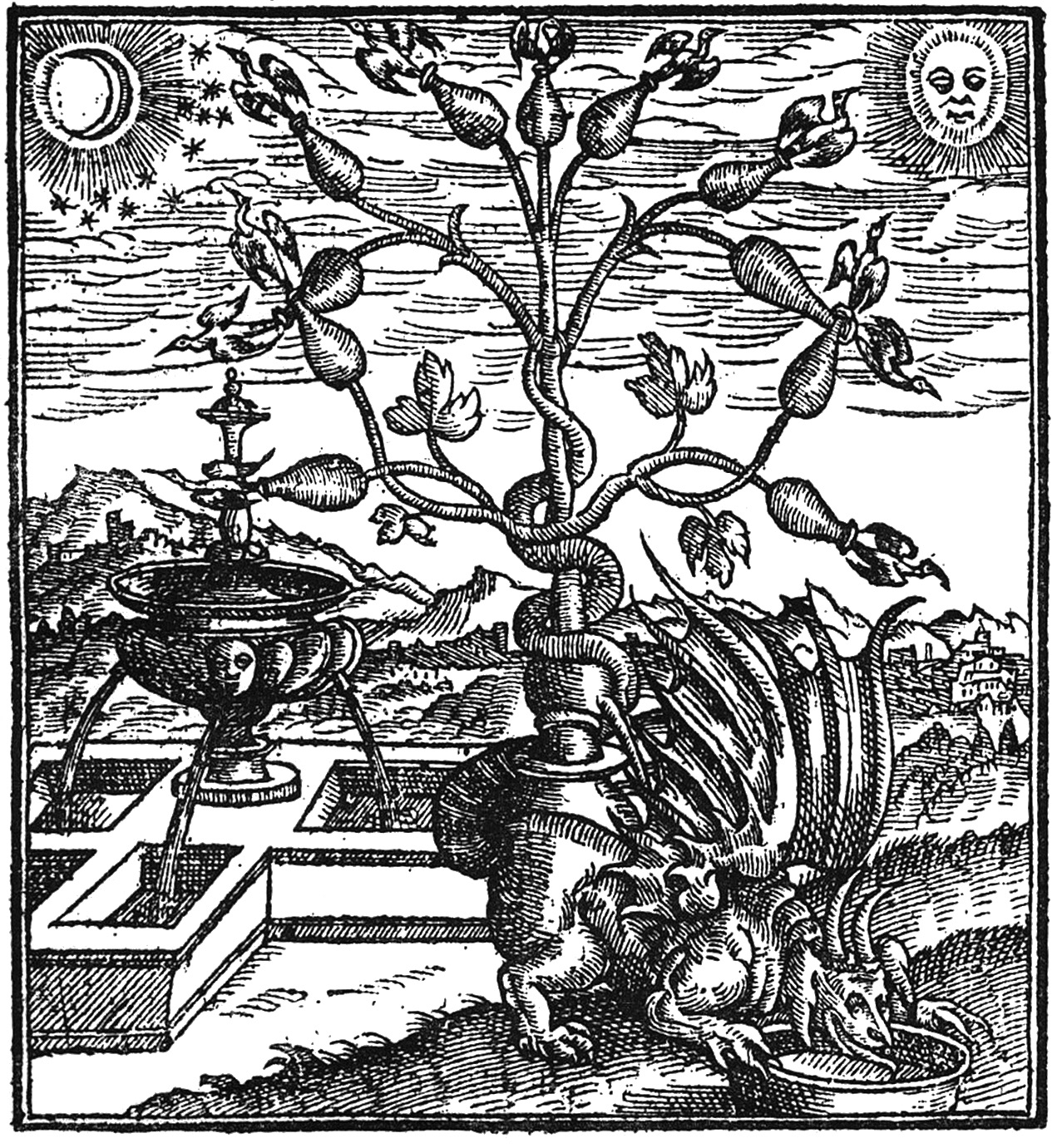
An engraving from the 1576 English edition of The New Jewell of Health symbolizes the art of distillation, which was used to extract essential oils from fruits, flowers, and other materials.
To Foster, my Philemon, from your Baucis

Aesthetics cures us of anesthesia. It awakens us.
MICHEL SERRES, The Five Senses
CONTENTS





The Boat of Foolish Smells, in a caricature engraving published in Josse Bades 1502 edition of La Nef des Folles (The Ship of Fools).
Odors have a power of persuasion stronger than that of words, appearances, emotions, or will. The persuasive power of an odor cannot be fended off, it enters into us like breath into our lungs, it fills us up, imbues us totally. There is no remedy for it.
PATRICK SSKIND, Perfume
 gyptians emptied corpses of their organs and filled the cavities with aromatics to prepare them for the afterlife. Romans splashed doves with rose water and set them loose in banquet halls to scent the air. Marie Antoinette employed her own perfumer, Jean-Louis Fargeon, who created bespoke perfumes to match the queens many moods. People have feasted on aromatic materials, scented temples with them, offered them to guests. Whatever the vehicleflowers or food, incense or perfumepeople in every time and place have gone out of their way to exercise and indulge the sense of smell. Why? Because no other sense makes us feel so fully alive, so truly human, so deeply, unconsciously, and immediately connected with our memories and experiences. No other sense so moves us.
gyptians emptied corpses of their organs and filled the cavities with aromatics to prepare them for the afterlife. Romans splashed doves with rose water and set them loose in banquet halls to scent the air. Marie Antoinette employed her own perfumer, Jean-Louis Fargeon, who created bespoke perfumes to match the queens many moods. People have feasted on aromatic materials, scented temples with them, offered them to guests. Whatever the vehicleflowers or food, incense or perfumepeople in every time and place have gone out of their way to exercise and indulge the sense of smell. Why? Because no other sense makes us feel so fully alive, so truly human, so deeply, unconsciously, and immediately connected with our memories and experiences. No other sense so moves us.
As an artisanal perfumer who works with extraordinary aromatic ingredients from all over the world, I venture deep into the fragrant world every day. And one of my greatest joys is bringing other people there, too, and watching as they immerse themselves in the experience. Scent is fun, sexy, visceral, transporting: it reminds us who we are and connects us to one another and to the natural world. Of all the senses, the sense of smell is the one that reaches most readily beyond us, even as it most powerfully taps the wellsprings of our inmost selves. It has an unparalleled capacity to wake us up, to make us fully human.
In The Picture of Dorian Gray , Oscar Wilde portrays the deep, instinctive connection between scent and our unconscious thoughts and emotions:
And so he would now study perfumes and the secrets of their manufacture, distilling heavily scented oils and burning odorous gums from the East. He saw that there was no mood of the mind that had not its counterpart in the sensuous life, and set himself to discover their true relations, wondering what there was in frankincense that made one mystical, and in ambergris that stirred ones passions, and in violets that woke the memory of dead romances, and in musk that troubled the brain, and in champak that stained the imagination; and seeking often to elaborate a real psychology of perfumes, and to estimate the several influences of sweet-smelling roots and scented, pollen-laden flowers; of aromatic balms and of dark and fragrant woods; of spikenard, that sickens; of hovenia, that makes men mad; and of aloes, that are said to be able to expel melancholy from the soul.
Wilde knows that aromas can take us anywhere, that they are a magic carpet we can ride to hidden worlds, not only to other times and places but deep within ourselves, beneath the surface of daily life. We close our eyeswe do this instinctively before we inhale a scent, as if preparing for the internal journeyand before we even consciously recognize what were smelling, we are carried away without our consent. Or we are stopped in our tracks, brought entirely into the present moment. (The next time you catch a whiff of skunk, try thinking about anything else at all.)
Ill never forget the first time I smelled the intense aromatic essences that are the perfumers palette. I had signed up for a perfume class at a nearby aromatherapy studio. The teacher laid out many small bottles of naturally derived botanical essences for us to compose with: oakmoss, angelica, jasmine, frankincense, patchouli, kewda, sweet orange, lime. I leaned over to smell each one, amazed at how rich and complex and singular and stinky and alive they were, how transporting . As I took in the oils, in all their gorgeous diversity, it was as if a mirrored sensation were occurring inside me; I felt as if I were becoming one with the oils, as if they were entering me. I couldnt tell where I left off and they began. I couldnt and didnt want to find the words to describe them; I just felt radiant and aliveas radiant and alive as they were. I fell in love immediately.
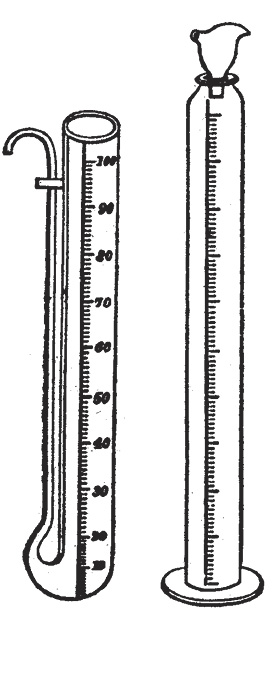
By then Id already lived for more than twenty years in Berkeley, California, where I had a thriving psychotherapy practice and had written a few books. The city itself had had a profound influence on me from the moment I arrived there, after an upbringing in Detroit. In Berkeley, I found the bohemian ambience I had longed for, an energy that was palpable in the streets, in the restaurants and cafs and shops. It felt as if behind every Arts and Crafts faade there were people making pottery or jewelry, writing books, doing improv, inventing new recipes, collaborating in a kind of rampant cross-fertilization of creativity.
As it happened, I moved into an Arts and Crafts house right behind the restaurant Chez Panisse, where Alice Waters had just begun to spread the gospel of locavorism. Three houses down was the original Peets Coffee, where Mr. Peet himself roasted the beans. My block was redolent with the smells of fresh coffee and of vegetables roasting in Chez Panisses wood-fired oven. In Detroit, front yards had been clipped, manicured, rolled-lawn affairs, but here in Berkeley peoples front yards overflowed with casual cottage gardens of fresh herbs and heritage roses, fruit trees in bloom, jasmine and wisteria climbing from basement to attic. I had never seen such a gift to the street! Despite Berkeleys reputation as the epicenter of the counterculture, the aesthetic it was steeped in was simple, almost Old World. It spoke to me, and it played a great role in shaping my own aesthetic. Working with the best ingredients, doing only what needed to be done and no morethis became my creative mantra.

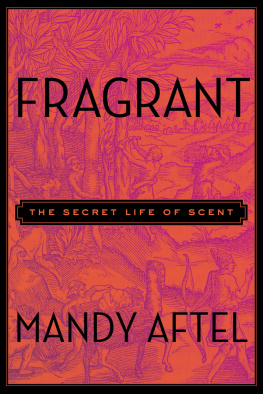
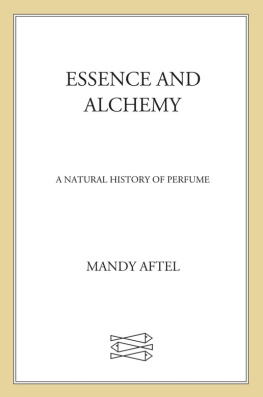
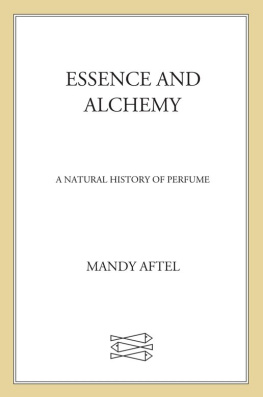
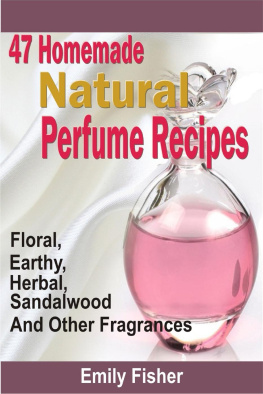
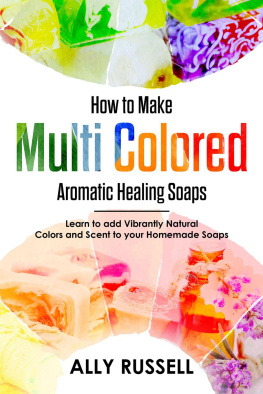
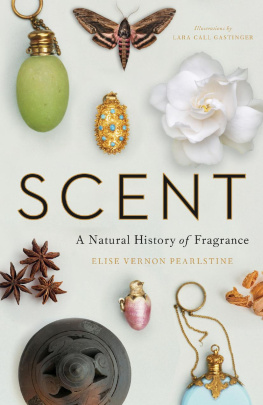

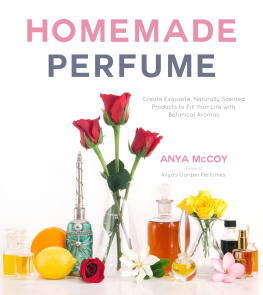
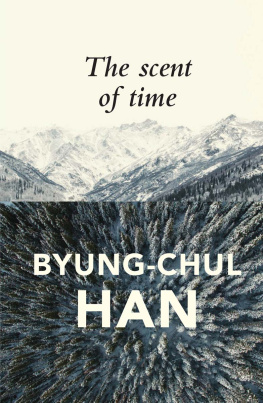
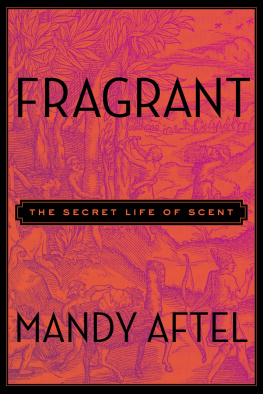


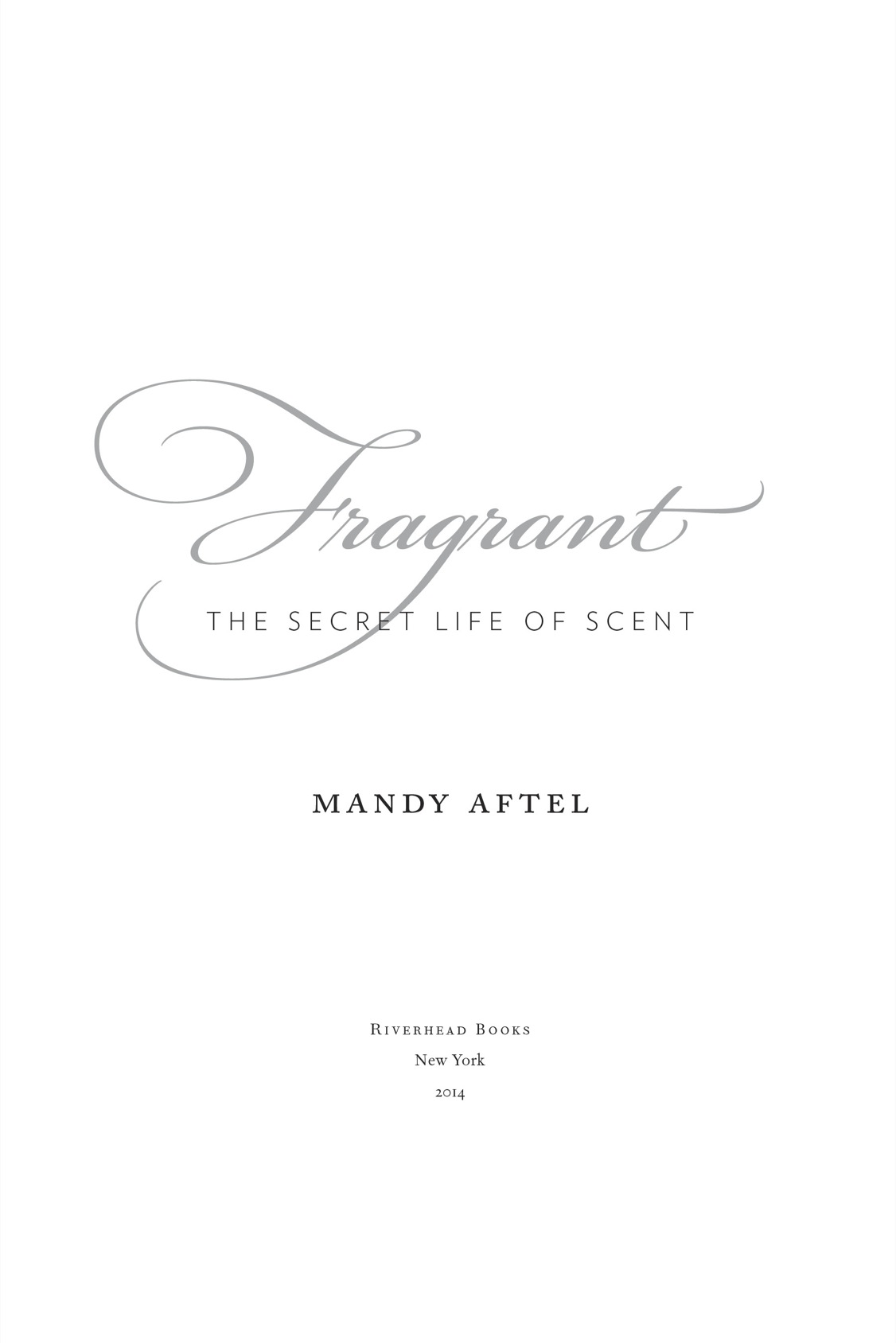






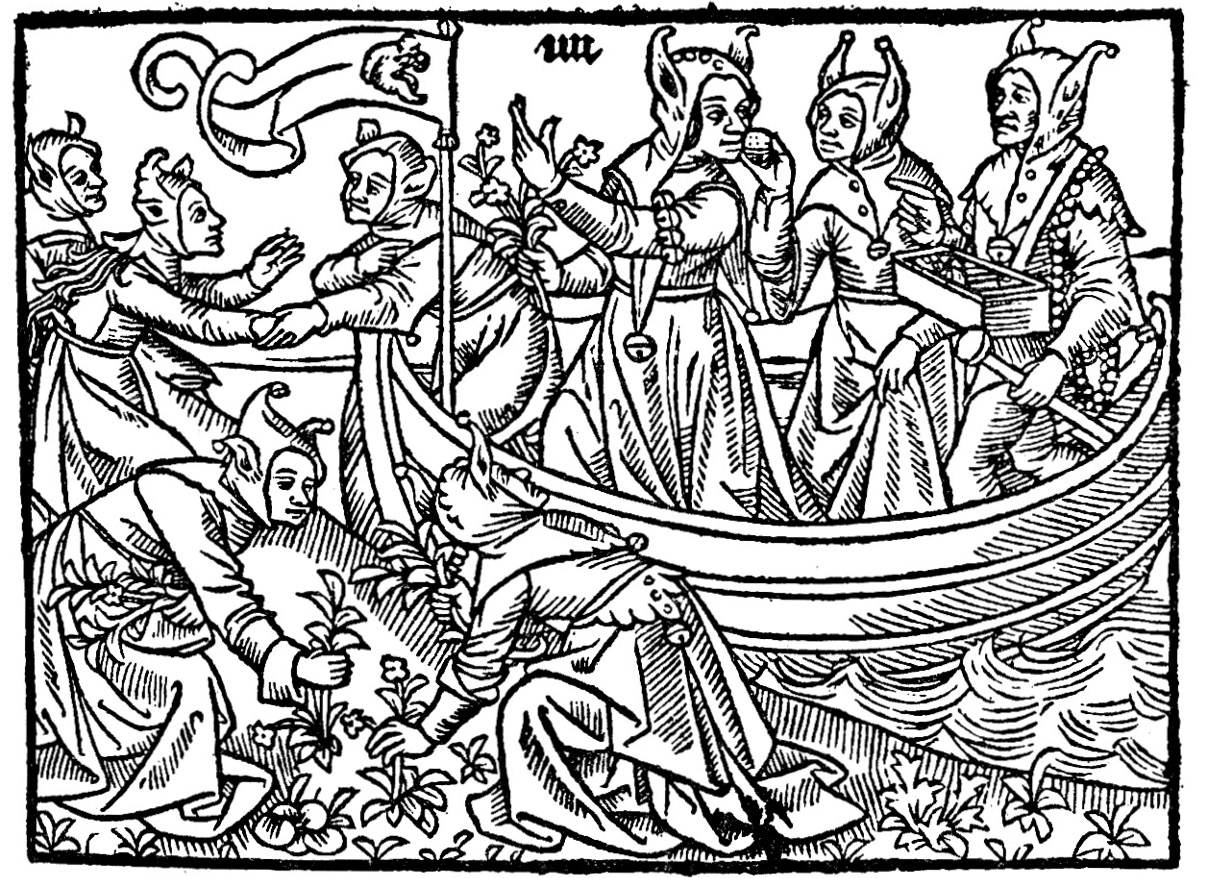
 gyptians emptied corpses of their organs and filled the cavities with aromatics to prepare them for the afterlife. Romans splashed doves with rose water and set them loose in banquet halls to scent the air. Marie Antoinette employed her own perfumer, Jean-Louis Fargeon, who created bespoke perfumes to match the queens many moods. People have feasted on aromatic materials, scented temples with them, offered them to guests. Whatever the vehicleflowers or food, incense or perfumepeople in every time and place have gone out of their way to exercise and indulge the sense of smell. Why? Because no other sense makes us feel so fully alive, so truly human, so deeply, unconsciously, and immediately connected with our memories and experiences. No other sense so moves us.
gyptians emptied corpses of their organs and filled the cavities with aromatics to prepare them for the afterlife. Romans splashed doves with rose water and set them loose in banquet halls to scent the air. Marie Antoinette employed her own perfumer, Jean-Louis Fargeon, who created bespoke perfumes to match the queens many moods. People have feasted on aromatic materials, scented temples with them, offered them to guests. Whatever the vehicleflowers or food, incense or perfumepeople in every time and place have gone out of their way to exercise and indulge the sense of smell. Why? Because no other sense makes us feel so fully alive, so truly human, so deeply, unconsciously, and immediately connected with our memories and experiences. No other sense so moves us.